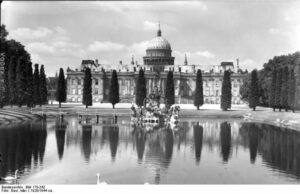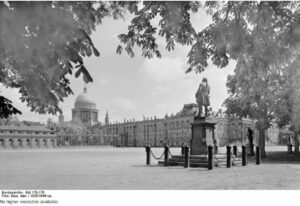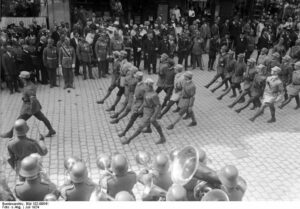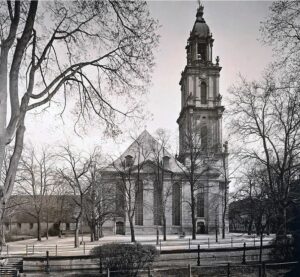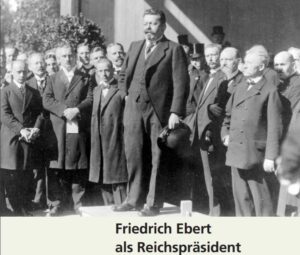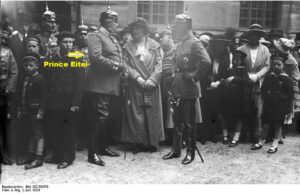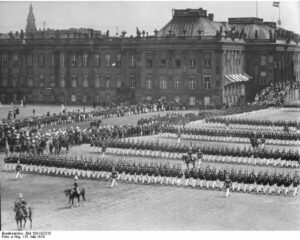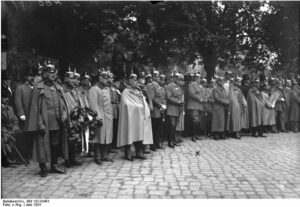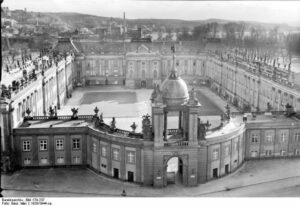This ceremony on August 3, 1924, in Potsdam held a special significance as it celebrated the 10th anniversary of the outbreak of WWI. It was attended by several high-ranking ministers and a brief speech was given by President Friedrich Ebert.
This short documentary of the occasion included the following scenes:
- View of Potsdam.
- The ceremony for the fallen soldiers of the “1st Guards Regiment”. March of the regiment in Potsdamer Garden (Potsdamer Lustgarten) and changing into columns formation, to the sound of music on the square.
- View of the Garrison Church (Garnisonkirche ).
- (Banned: scene 4 – “Prince Oskar”) – Prince Oskar and Prince Eitel-Frederich in front of some citizens and military men.
- (Banned: scene 5 – “Prince August Wilhelm”) – Prince August Wilhelm seated between a citizen and a military man.
- The approach of the 1st company to the foreground while an army brass band is shown playing on the parade grounds. March of soldiers in sports gear.
- (Banned: scene 7 – “Prince Eitel-Friedrich hands over the prizes to the winners of the 1st company”) – Prince Eitel is seen standing among soldiers.
- The city palace (Das Stadtschloβ).
Censor’s Decision
This documentary was first reviewed on August 11, 1924. The meeting included the regular censor’s committee members, several Nivo-Film representatives and an expert from the office of the Commissioner for Public Order and Safety.
Following the screening of the film, a discussion was held where the expert objected to several scenes depicting the Crown Princes, all sons of former Emperor Wilhelm II – Prince Eitel Friedrich, Prince August Wilhelm and Prince Oskar. In his opinion, including them was contradictory to the image of the new Republic which Germany wanted to project to the world after the war. The fear was that this might disrupt public order and that an emphasis on Royalty in conjunction with the military, might give rise to new incitement against Germany.
The censor committee accepted the expert’s view and 5 scenes out of 8 were banned.
Nivo-Film contested the decision and on September 4, 1924, the committee was convened again. In addition to the previous representatives, delegates from both the Foreign Office and the Prussian Home Office attended.
The representatives gave the following statements:
- Commissioner for Public Order and Safety – withdrawal of the objection to a considerable part of the film, except for the scene were one of the former Crown Princes is handing out prizes to the military
- Foreign Office – no objection apart from the above prize-giving scene, because this might endanger Germany’s relations with foreign states
- Prussian Home Office – no objection to the film because the creator showed no intention other than to depict the festivities of the occasion
The censor’s committee decided to change the former decision and to partially accept the views of the delegates. The screening of the film would now be permitted to all audiences of the German Reich and only 3 scenes, in which the representatives of the former Imperial House were shown, would be banned. The committee also declared that Nivo-Film would pay the costs of these proceedings because not all objections were lifted.
Photo Gallery
Below are some of the locations depicted in this documentary and scenes from a similar ceremony, which can demonstrate what this documentary might have looked like:
(click on any photo to start a slide show)
